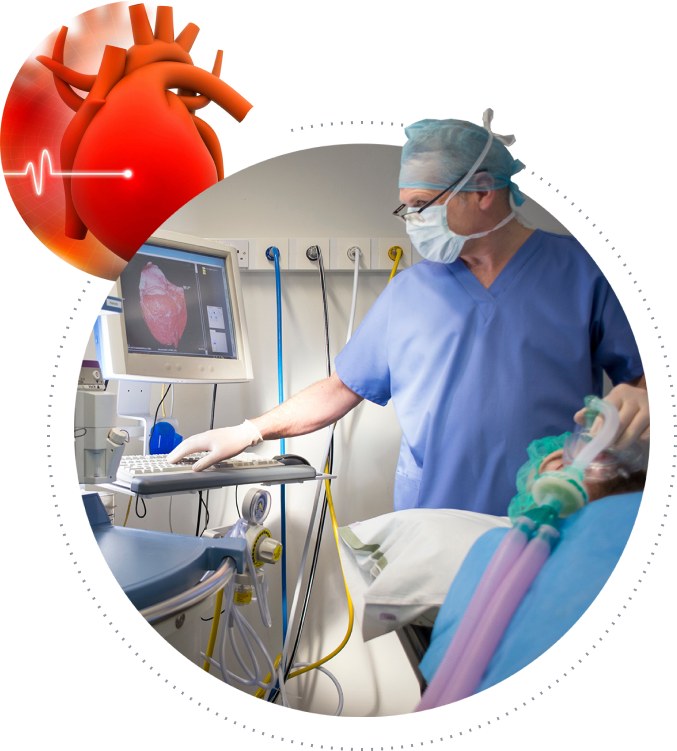Hypertension (high blood pressure) is the leading modifiable risk factor for cardiovascular disease¹. At First Coast Heart and Vascular Center, our Hypertension Clinic is dedicated to improving the detection and treatment of high blood pressure using evidence-based approaches. Our goal is to reduce the risk and incidence of cardiovascular disease in our patient population.
Hypertension Clinic

In Search of Care? Request a Consultation Today

Why the Hypertension Clinic?
Nearly half of US adults (47.3% or 121.5 million) have hypertension, with 40% unaware of their condition². In fact, recent guideline changes have lowered the threshold for hypertension diagnosis, increasing the number of affected individuals⁴ — making the need for proactive care even more urgent.
Uncontrolled hypertension significantly increases the risk of stroke, heart failure, coronary artery disease, peripheral vascular disease, and atrial fibrillation⁴. To illustrate, hypertension is responsible for 54% of stroke cases and 47% of ischemic heart diseases worldwide. About 80 percent of those cases occurred in low and middle-income populations³.
Our Program Offers:
- Remote monitoring devices, including blood pressure cuffs
- Regular monitoring by a dedicated nurse
- Close follow-up with a cardiologist
- Urgent appointments are available, both in-person and virtually
- Comprehensive education and resources for long-term blood pressure management
- Evidence-based treatment approaches
Testing for Hypertension
Hypertension is defined as:
- Systolic blood pressure ≥130 mmHg or
- Diastolic blood pressure ≥80 mmHg
We make a diagnosis based on at least two blood pressure readings obtained on two or more occasions.
Additional Resources
If you would like to learn more about living with hypertension and how to manage it, we recommend these trusted resources:

Frequently Asked Questions
What is hypertension?
Hypertension, or high blood pressure, is a condition in which the force of blood against the artery walls is consistently too high.
What are the symptoms of hypertension?
Hypertension is often called the "silent killer" because it typically has no symptoms. Some people may experience headaches, shortness of breath, or nosebleeds, but these usually occur only when blood pressure reaches severe levels.
What causes hypertension?
Causes can include genetics, age, diet (especially high salt intake), lack of physical activity, obesity, stress, smoking, and certain chronic conditions.
How is hypertension diagnosed?
It's diagnosed through blood pressure readings taken on at least two separate occasions. A reading of 130/80 mmHg or higher is considered hypertension.
What are the risks of untreated hypertension?
Untreated hypertension can lead to heart disease, stroke, kidney damage, vision problems, and other serious health issues.
Can hypertension be cured?
While there's no cure, hypertension can be managed effectively with lifestyle changes and medication.
How can I lower my blood pressure naturally?
Natural ways include reducing salt intake, exercising regularly, maintaining a healthy weight, limiting alcohol, quitting smoking, and managing stress.
Can young people get hypertension?
Yes, while it's more common in older adults, hypertension can affect people of all ages, including children and young adults.
Is hypertension hereditary?
There is a genetic component to hypertension, but lifestyle factors play a significant role too.
Can stress cause hypertension?
Chronic stress can contribute to high blood pressure. Stress management techniques can help control blood pressure.
